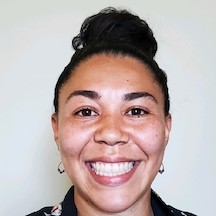 The 1870 federal census recorded formerly enslaved African Americans by name, and though it is a vital tool for genealogical research, many African Americans are still not able to trace their family members to or beyond this document. Due to poor record keeping during slavery, much of the ancestral information for African Americans before 1870 has been lost. But a new study by researchers at Stanford University and the University of Southern California aims to give some clues to fill in the lost history.
The 1870 federal census recorded formerly enslaved African Americans by name, and though it is a vital tool for genealogical research, many African Americans are still not able to trace their family members to or beyond this document. Due to poor record keeping during slavery, much of the ancestral information for African Americans before 1870 has been lost. But a new study by researchers at Stanford University and the University of Southern California aims to give some clues to fill in the lost history.
“Slavery was not that many generations ago, so my family still tells stories about our enslaved ancestors, like who they were and, in my case, how we ended up as light as we are,” said first author Jazlyn Mooney, the Gabilan Assistant Professor of Quantitative and Computational Biology at the Dornsife College of Letters, Arts and Sciences at the University of Southern California. “But these are just stories and that is what most African Americans have left. We don’t have any records or numbers. There’s no tangible data.”
Using computational methods informed by genetic data, researchers estimate that a random African American born between 1960 and 1965 is descended from, on average, 314 African and 51 European ancestors reaching back to 1619. “The rough outline of African American family trees is well-known. There are many enslaved Africans, as well as some Europeans. But how many? The study asks a new question and gives some estimates,” Dr. Mooney said.
Dr. Mooney is a graduate of the University of New Mexico, where she majored in anthropology and biology. She holds a Ph.D. in human genetics from the University of California, Los Angeles.
The full study, “On the Number of Genealogical Ancestors Tracing to the Source Groups of an Admixed Population,” was published in the journal Genetics. It is available here.












I am interested in your study. I hope to hear from you soon.